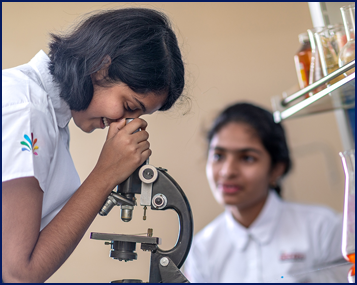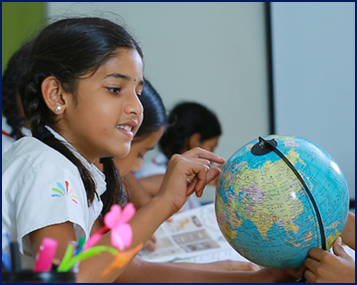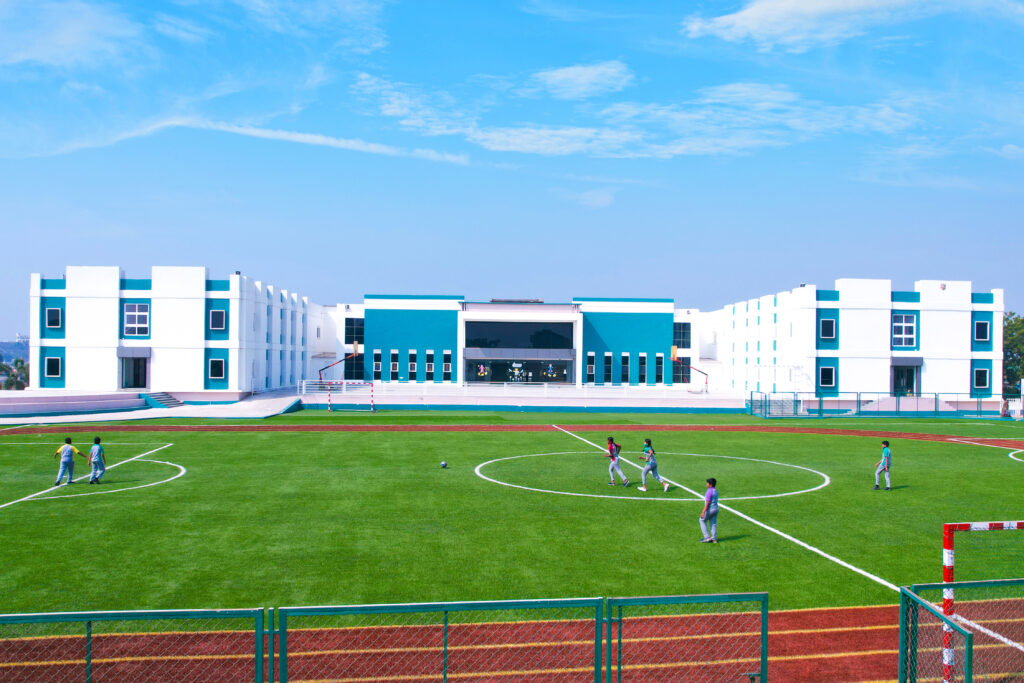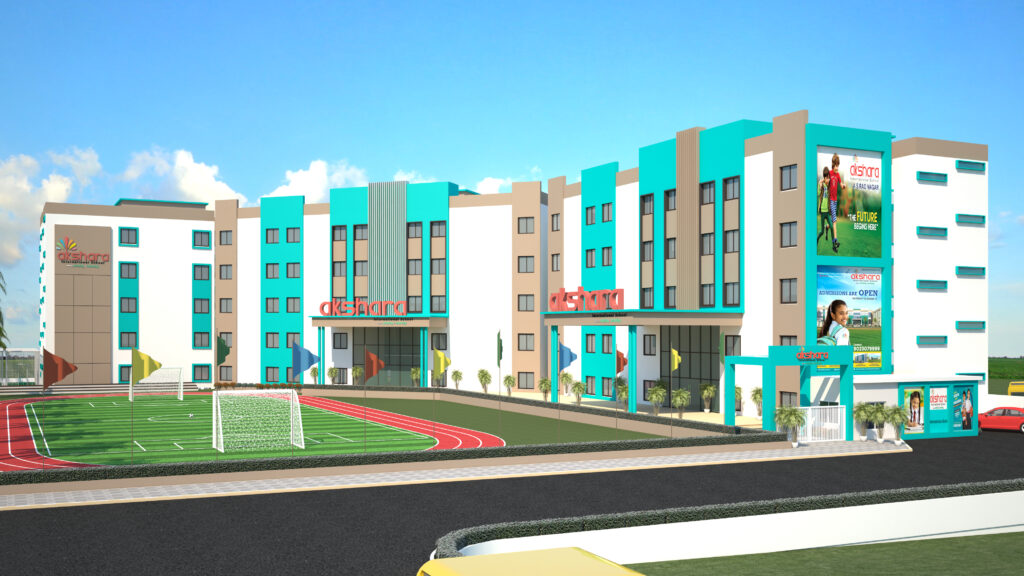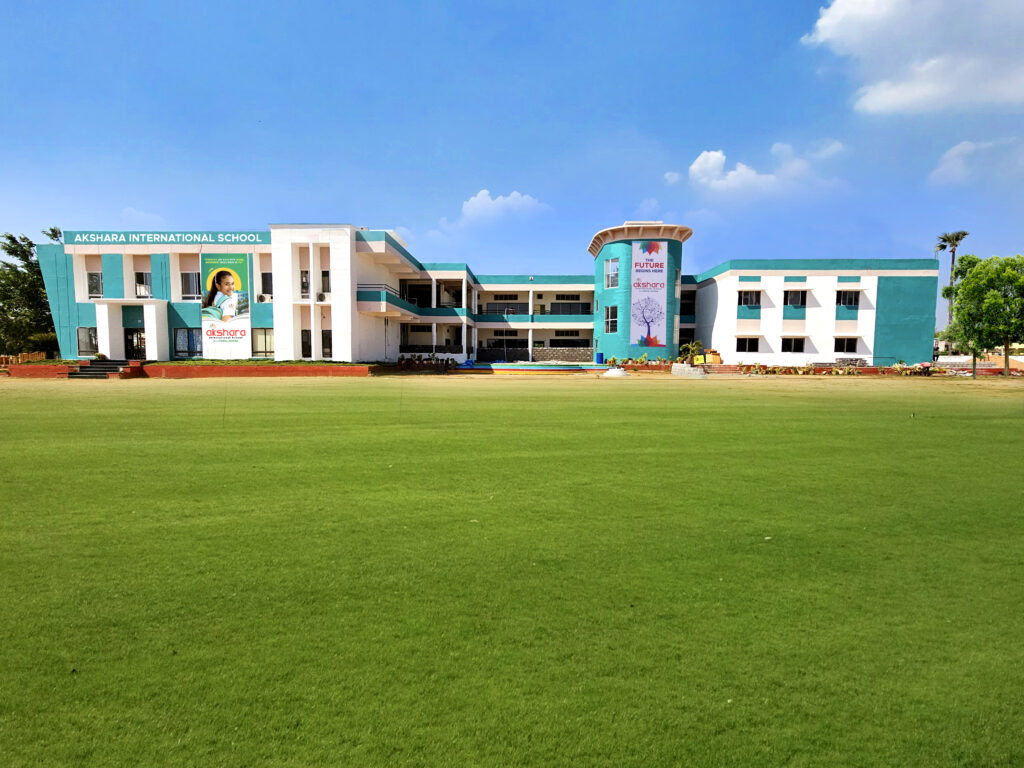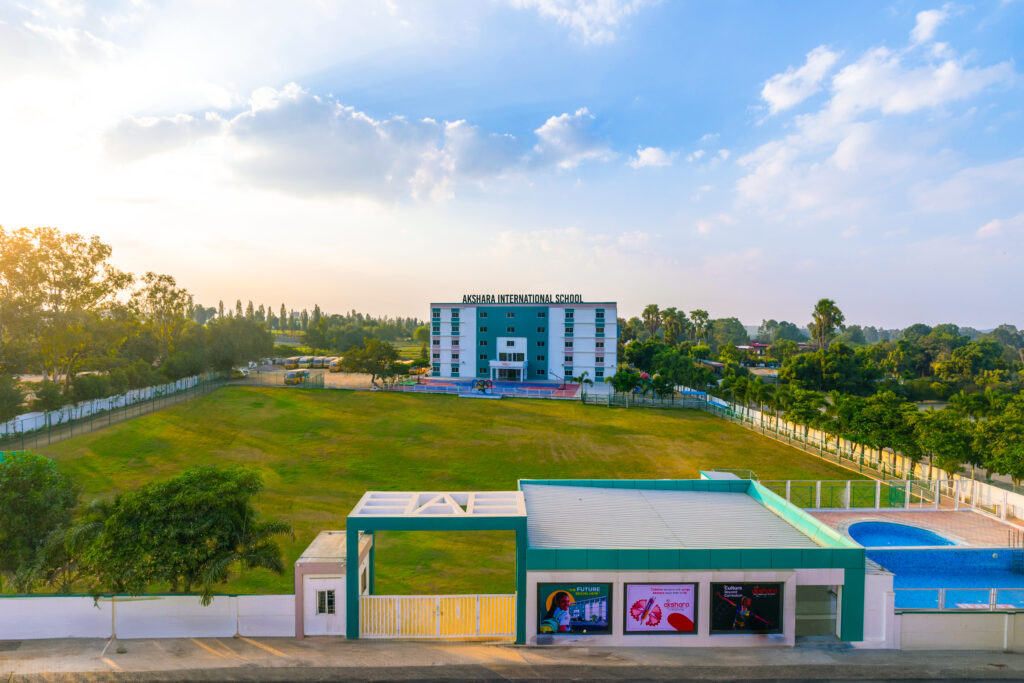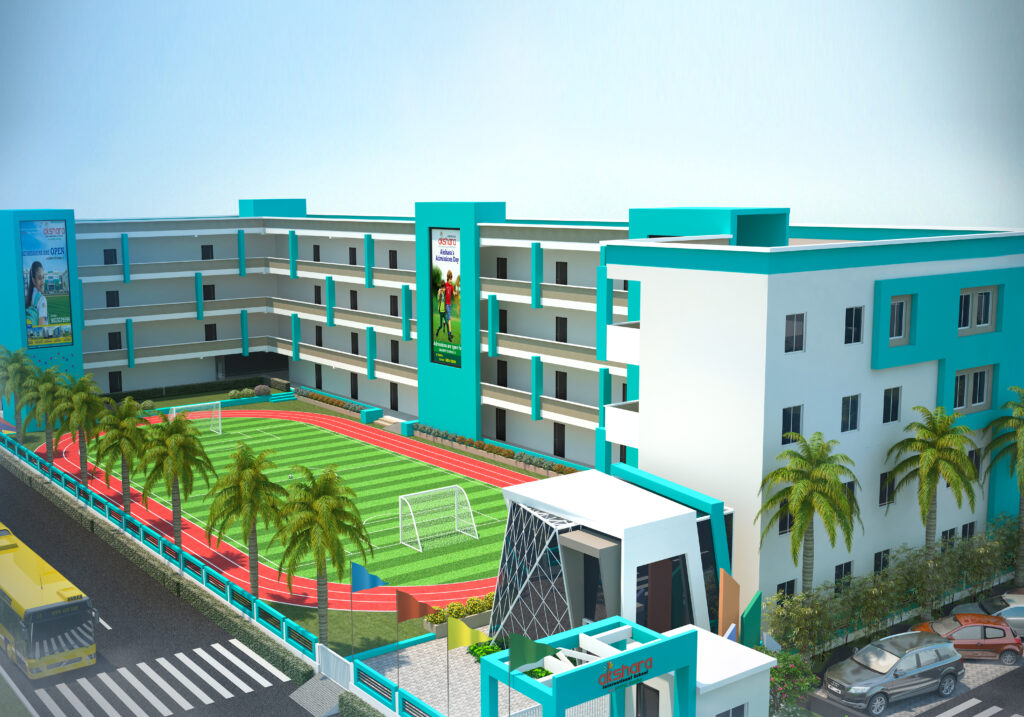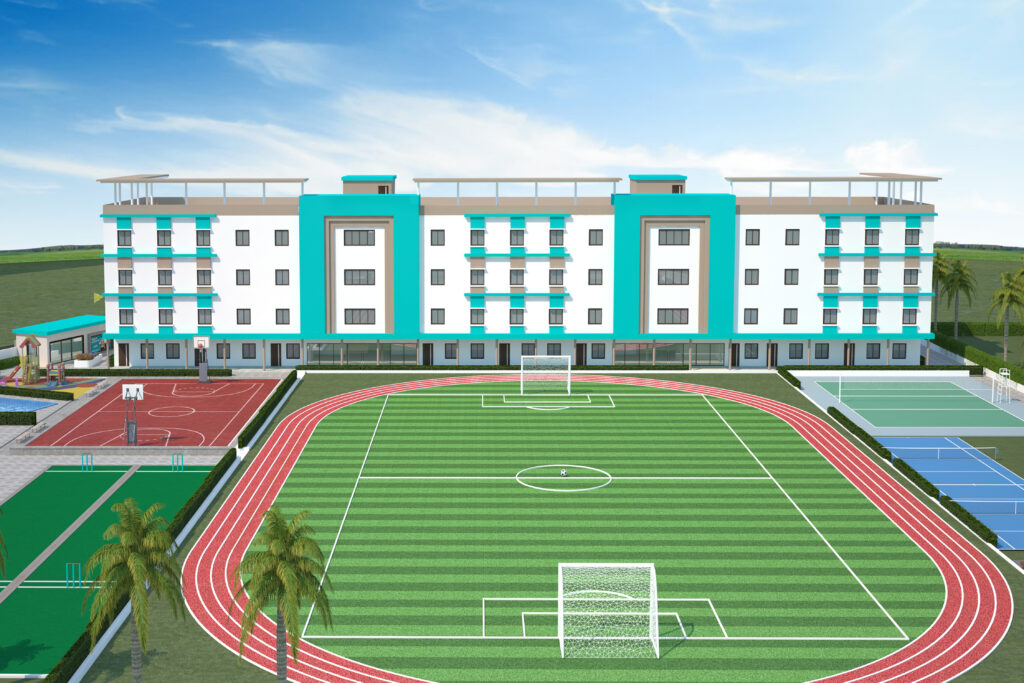







Welcome to
AKSHARA INTERNATIONAL SCHOOL
"Children are born with wings, Akshara help them fly"
Glimpse of our School
About Akshara
Akshara International schools are imbued with the spirit of innovation and excellence, ensuring a nurturing environment for students to thrive and flourish. Under the visionary leadership of Jagan Mohan Rao Arishnapally, the entrepreneurial giant from Hyderabad and founder of Indwell Group, Akshara paves the way for progressive education, instilling values that go beyond academics.
The ethos of Akshara lies in its commitment to holistic growth, nurturing not only the intellectual abilities but also the emotional, physical, and creative facets of every individual. From the foundation to the pinnacle, every brick and brain in the school embodies a dedication to fostering a culture of holistic learning, enabling students to transcend their potential.
The ethos of Akshara lies in its commitment to holistic growth, nurturing not only the intellectual abilities but also the emotional, physical, and creative facets of every individual. From the foundation to the pinnacle, every brick and brain in the school embodies a dedication to fostering a culture of holistic learning, enabling students to transcend their potential.
About Akshara
Akshara International schools are imbued with the spirit of innovation and excellence, ensuring a nurturing environment for students to thrive and flourish. Under the visionary leadership of Jagan Mohan Rao Arishnapally, the entrepreneurial giant from Hyderabad and founder of Indwell Group, Akshara paves the way for progressive education, instilling values that go beyond academics.
The ethos of Akshara lies in its commitment to holistic growth, nurturing not only the intellectual abilities but also the emotional, physical, and creative facets of every individual. From the foundation to the pinnacle, every brick and brain in the school embodies a dedication to fostering a culture of holistic learning, enabling students to transcend their potential.
The ethos of Akshara lies in its commitment to holistic growth, nurturing not only the intellectual abilities but also the emotional, physical, and creative facets of every individual. From the foundation to the pinnacle, every brick and brain in the school embodies a dedication to fostering a culture of holistic learning, enabling students to transcend their potential.
Glimpse of our School.
★★★★★
4.7 rating from 8,000+ reviews ★★★★★
4.7 rating from 8,000+ reviews ★★★★★
4.7 rating from 8,000+ reviews Campuses
0
+
Qualified Staff
1100
Students
9500
+
Our Schools

Akshara's Iconic Features
Parents Voices: Decades of Trust and Excellence
A Message From Our Principal: Shaping Futures With Purpose and Passion"
Inside the Classroom: Teachers Share Their Akshara Experience
Testimonials
AISH stands proudly as the preeminent international school chain in South India.
Our legacy is one of transformative impact, as we nurture and cultivate the leaders of tomorrow.
Our legacy is one of transformative impact, as we nurture and cultivate the leaders of tomorrow.



☆☆☆☆☆
.
Excellent care, guidance and support for children. The teachers enable children to reach their full potential. Children learn in a safe and happy environment. I couldn't think of a better school for any child to be in.
Chandana Deepti
IPS




☆☆☆☆☆
.
AKSHARA thrives because of its heterogeneous student body and administration dedicated to cutting-edge teaching and learning, whether though classroom technology or teacher training in Student-centred, active -learning approaches. Akshara, in my opinion, is a truly global school poised to transcend much further.
Smita Sabharwal
Secretary to Chief Minister of Telangana




☆☆☆☆☆
.
I'm impressed by AISH's security precautions. My special mention goes to the school's comprehensive curriculum design. It promotes the child's develop- ment in public speaking, communication with peers and adults, life skills, teamwork traits, and academics.
Mahesh Bhagwat
Additional DGP, Rachakonda Police Commissioner




☆☆☆☆☆
.
Akshara International School stands as a beacon of excellence in both academics and sports. It’s heartening to see a school that nurtures not only the minds of young students but also their athletic potential. I firmly believe that education and sports go hand in hand in shaping disciplined, well-rounded individuals. The facilities and support provided at Akshara are truly commendable. I'm proud to be associated with a school that is dedicated to inspiring the next generation of leaders and sports stars.
Bhaichung Bhutia
Former Indian Football Captain




☆☆☆☆☆
.
Akshara International School truly embodies excellence, integrity, and holistic education. At a time when our nation is focused on nurturing responsible and informed citizens, Akshara stands out as a school that goes beyond academics to instill values, character, and a sense of civic responsibility.
The commitment I witnessed here — nurturing young minds with a perfect balance of knowledge, creativity, discipline, and ethics — is truly inspiring. I deeply appreciate Akshara’s mission in shaping the future leaders of our country
Mr.Vivek Oberoi
Indian Film Actor




☆☆☆☆☆
.
“Akshara International School reflects the true spirit of excellence, discipline, and determination. During my visit, I saw a learning environment where children are encouraged not only to excel in academics but also to dream big, stay confident, and build a strong character.
What impressed me most is how Akshara nurtures every child’s potential — whether in sports, academics, or co-curricular activities — with equal passion and commitment. This is the kind of foundation that shapes champions, leaders, and responsible citizens.
I truly admire Akshara’s vision and the incredible effort put into empowering young minds to achieve greatness.”**
What impressed me most is how Akshara nurtures every child’s potential — whether in sports, academics, or co-curricular activities — with equal passion and commitment. This is the kind of foundation that shapes champions, leaders, and responsible citizens.
I truly admire Akshara’s vision and the incredible effort put into empowering young minds to achieve greatness.”**
Nikhat Zareen
World Champion Boxer




☆☆☆☆☆
.
Akshara International School represents the kind of educational excellence our country needs today. I witnessed an environment where academic rigor is beautifully balanced with values, critical thinking, and responsible citizenship.
What impressed me most is Akshara’s commitment to shaping not just well-educated students, but thoughtful, ethical, and socially conscious individuals. The focus on character-building, innovation, and holistic development reflects a deep understanding of what true education should be.
Institutions like Akshara play a vital role in preparing future leaders who will contribute meaningfully to our society and nation.”**
What impressed me most is Akshara’s commitment to shaping not just well-educated students, but thoughtful, ethical, and socially conscious individuals. The focus on character-building, innovation, and holistic development reflects a deep understanding of what true education should be.
Institutions like Akshara play a vital role in preparing future leaders who will contribute meaningfully to our society and nation.”**
Dr. Jayaprakash Narayan
Retd. IAS Officer & Founder, Loksatta

Our Alumni - Our Pride

Manish Garnipally
IIT Hyderabad,
Akshara Alumni (2021-22)

Bhuvan Ch
IIT Patna,
Akshara Alumni (2021-22)

Manushri Mekala
NIT Bhopal,
Akshara Alumni (2021-22)

Vishnu
IIT Patna,
Akshara Alumni (2021-22)

Manish Garnipally
IIT Hyderabad,
Akshara Alumni (2021-22)

Bhuvan Ch
IIT Patna,
Akshara Alumni (2021-22)

Manushri Mekala
NIT Bhopal,
Akshara Alumni (2021-22)

Vishnu
IIT Patna,
Akshara Alumni (2021-22)
Our Gallery
The campuses of Akshara International School are aesthetically gorgeous and the lushly landscaped architecture features classrooms, learning centres and libraries that are roomy and well-ventilated, with a special emphasis on safety and surveillance that are operational 24/7. We provide a state of the art bus fleet that is tracked via GPRS and a mobile parental app and IVRS connection to easily access everything at fingertips. We take pride in crafting an environment that supports and enhances learning, ensuring that every facet of our facilities contributes to the holistic growth of our students.
